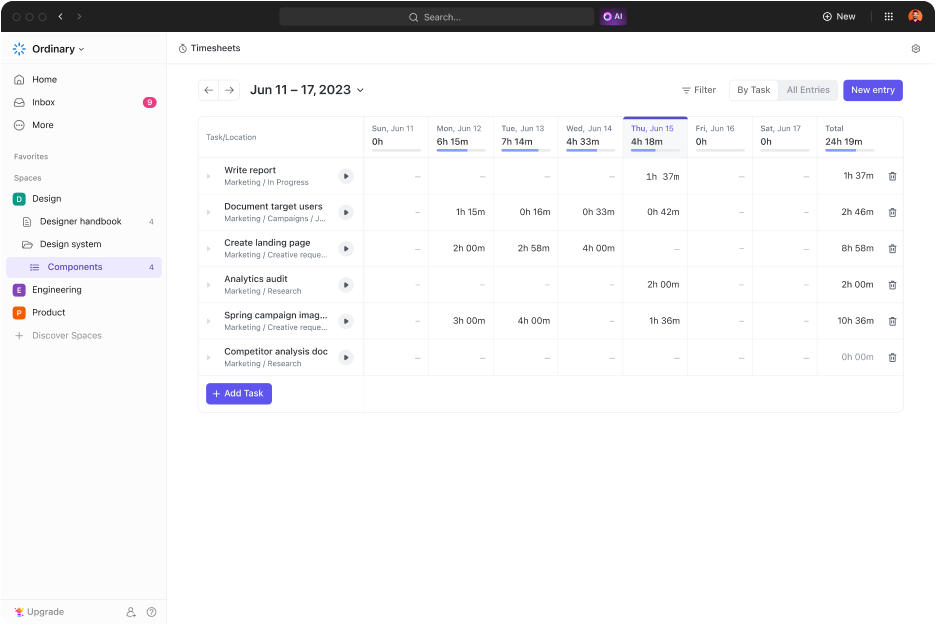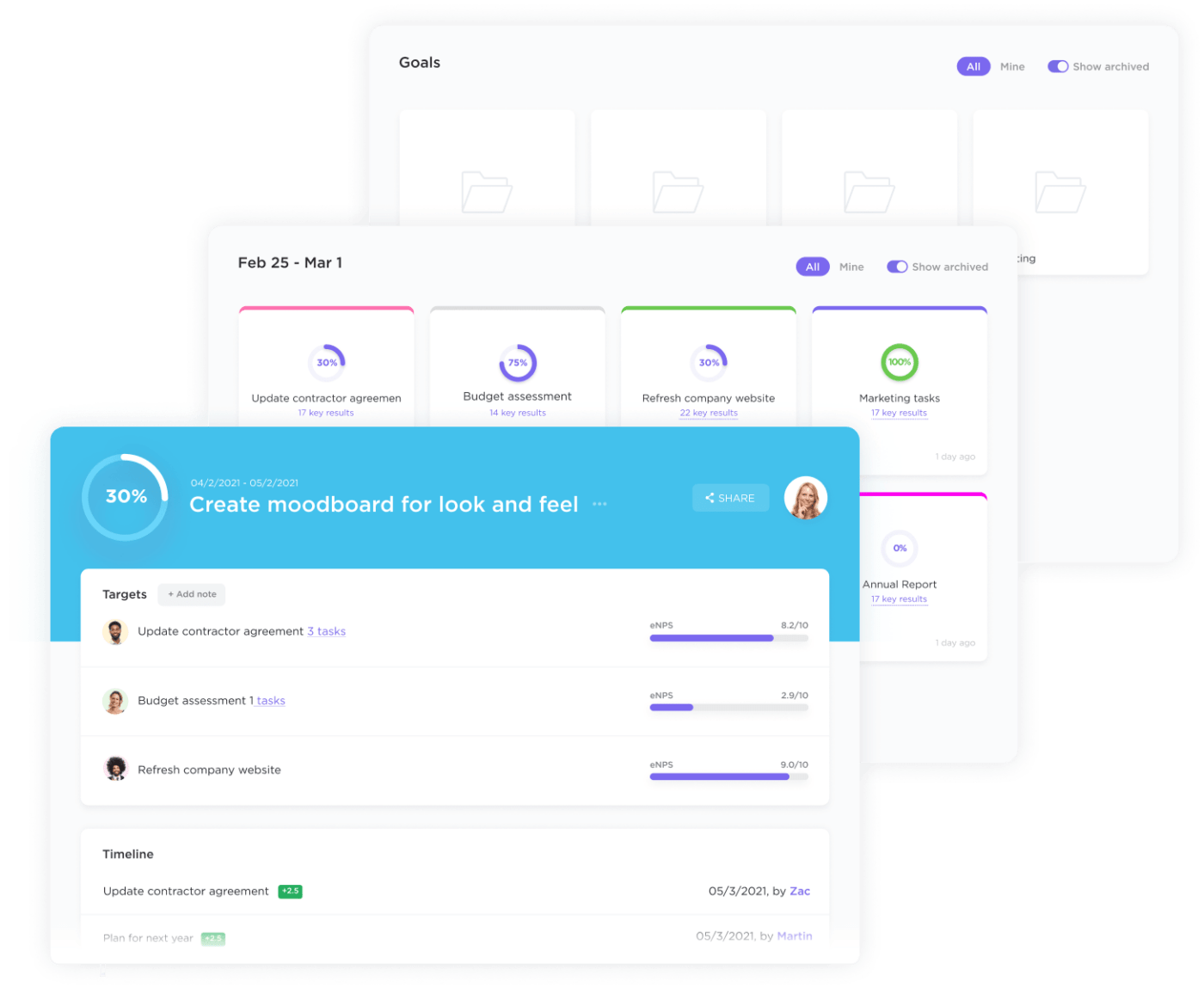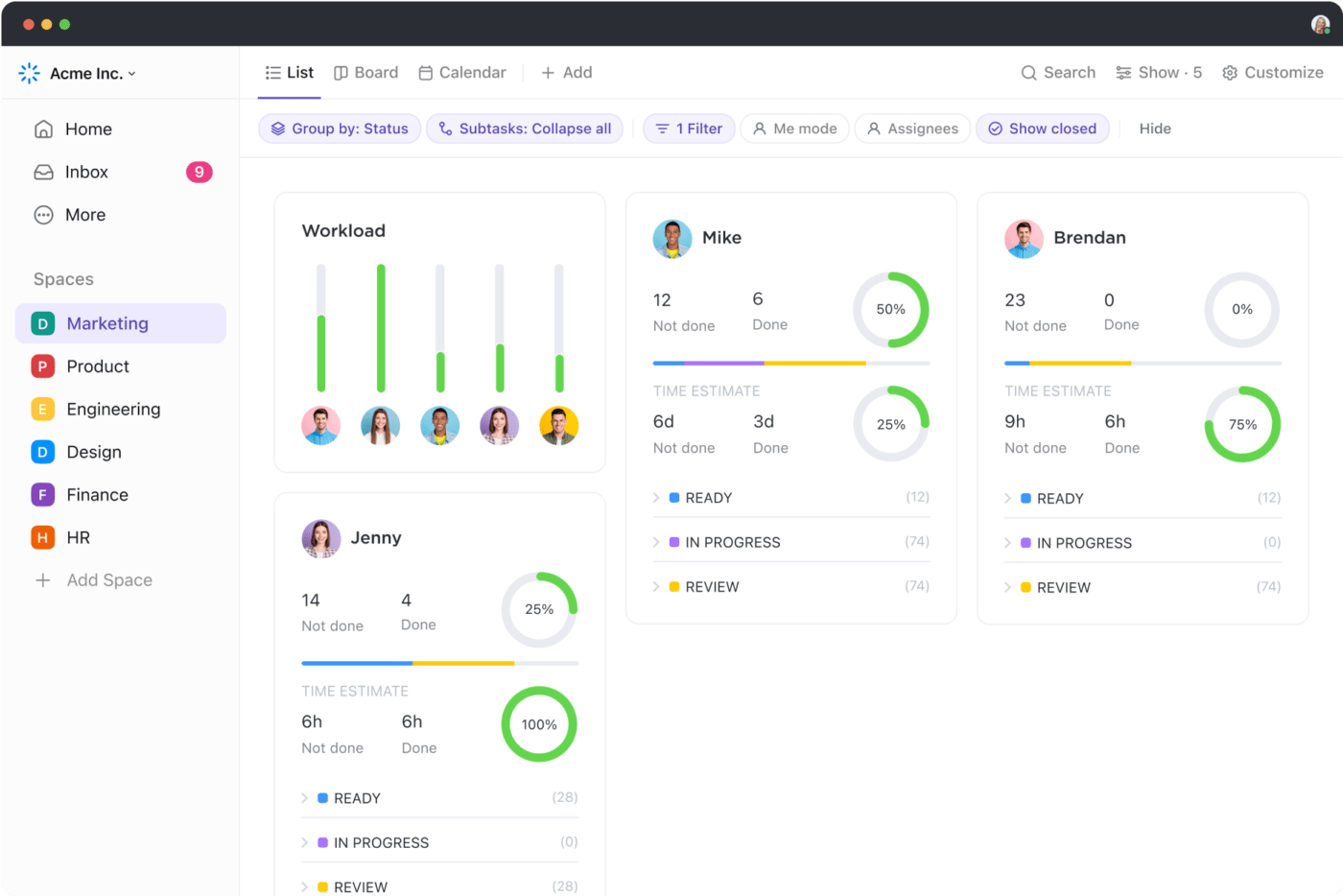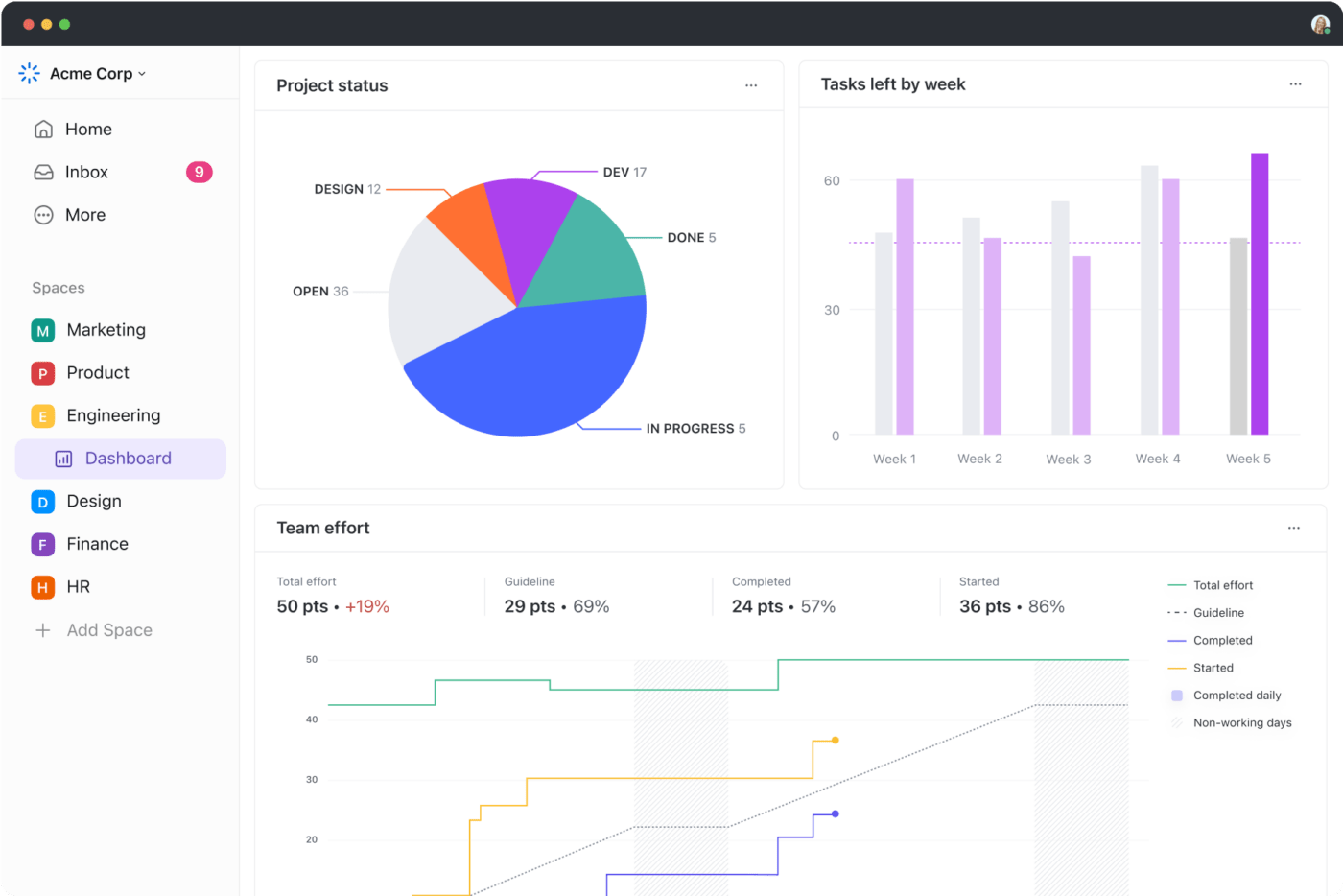7 Self-Management Skills to Boost Productivity at Work

Sorry, there were no results found for “”
Sorry, there were no results found for “”
Sorry, there were no results found for “”
Multiple management styles, productivity tools, or strategies can help you become more efficient in your work. However, despite having all the essential tools and technology to stay focused and disciplined, we may be one of the most distracted generations in human history.
Part of the blame lies with us, but it mostly has to do with the distractions that are always vying for our attention. This could be the barrage of notifications on our phones and messaging apps, email updates, group discussions, meetings, and so much more that is constantly happening all around us.
In this demanding work environment, it’s easy to feel like there just aren’t enough hours in the day. But what if there was a way to take control, boost your productivity, and achieve more with less stress? There is a way to get things done, and that is by using strong self-management skills.
Self-management can help you effectively regulate your thoughts, emotions, and behaviors, focusing all your attention on the things that truly matter. It’s about taking ownership of your workday and developing the skills you need to thrive. But why is it so important, and can it really help you improve your workplace productivity? Let’s find out.
Self-management is the ability to regulate your behavior, thoughts, emotions, and activities to help you become more productive and efficient. It’s about taking charge of your personal and professional journey by consciously directing yourself towards achieving your goals.
This is crucial because no matter which tool or platform you use to manage your work habits or projects, the ultimate factor that will determine productivity is your focus or dedication toward a task.
Thus, strong self-management skills are the foundation for success for any individual or team. Self-management empowers you to become the architect of your professional success. By honing these skills, you’ll be well-equipped to navigate the demands of your workday and achieve remarkable results.
Effective self-management can help you crush your workday and navigate challenges in day-to-day routines. However, the benefits of self-management don’t just focus on productivity. It can go beyond that, teaching you about self-discipline, time management, self-awareness, and even managing stress. This helps you in both your professional and personal life by enabling you to:
Also read: The characteristics of self-managed teams
Developing self-management skills begins with self-awareness. Knowing yourself and your environment helps you implement the right protocols. But how do you measure or create self-awareness? Here is a look at the key components of self-management that can help you understand your personality traits and behaviors effectively:
The first step to self-management is managing your time. Remember that we all get 24 hours a day, and how we manage our time will determine how productive or successful we are. Self-managed people are good at prioritizing their activities to make the best use of their time. This helps them accomplish more and coach others to manage their time better.
Self-awareness is one thing, but self-motivation is critical for any productive day. We often set huge expectations for ourselves, leading to not meeting those goals. That’s why set realistic goals and instill the confidence to achieve them. Strong self-motivation is essential for sustained productivity and achieving your goals. To motivate yourself, find work and activities that engage and excite you.
Stress is a natural human response to pressure, but chronic stress can harm your well-being, productivity, and even your mental health. Effective stress management helps you to stay calm and focused and maintain a healthy work-life balance. Self-management requires having a healthy way of dealing with stress and having good coping skills.
Making effective decisions is a cornerstone of self-management and a key driver of success in any professional setting. From prioritizing tasks to navigating complex projects, weighing options objectively and choosing the best course of action is essential. Effective decision-making also includes the ability to think critically and solve problems.
While self-management can improve your productivity and make you a more efficient team player, it must be accompanied by intentional efforts toward personal development. By actively investing in personal development, you can refine your existing skills, acquire new ones, and stay adaptable in an ever-changing work environment.
In addition to setting goals, self-management requires ensuring your daily tasks and activities are aligned with your long-term aspirations. This concept, known as goal alignment, ensures your efforts contribute meaningfully to achieving your bigger picture. Goal alignment involves setting goals that match longer-term objectives, sharing them with stakeholders to get their alignment, and then working towards them consistently.
Adaptability is another essential skill of self-management. It means you can change your stride and alter your approach as needed. For instance, while a project is underway, you may find that conditions have changed and a new approach is required. Being adaptable makes you open to pivoting in response to such a change. Adaptability is a crucial skill that can help you thrive in an ever-evolving environment.
Nearly 43% of employees feel overwhelmed by the number of apps they use, and 40% of their time is lost to context-switching. See how a unified work platform reduces noise and keeps focus in one place.
While self-management offers a multitude of benefits, it’s not without its challenges. Here are some common hurdles you might encounter, especially in a fast-paced and challenging work environment:
These challenges can significantly hinder your productivity and well-being. While technology offers many tools and communication channels, it can also contribute to information overload, constant distractions, and a blurring of the lines between work and personal life. Effectively navigating these challenges requires a proactive approach to self-management and leveraging technology to your advantage.
Now that we have explored the crucial self-management skills, let’s examine a few strategies to help you adopt them in your daily life.
To help you effectively manage your time, which is your number one asset, follow these simple time management techniques:
Also read: Summary of The 7 Habits of Highly Effective People

💡Pro Tip: You can use productivity and time management software like ClickUp to apply these time management principles. Using ClickUp for Time Management allows you to manage and track your time on every activity, helping you and your teams stay on track and manage project deadlines.
Here are some ways to stay motivated and boost yourself whenever you are feeling low:

💡Pro Tip: Leverage ClickUp Goals to:
Here are some key strategies to manage stress in your professional life:

💡Pro Tip: ‘The One Minute Manager‘ by Ken Blanchard and Spencer Johnson explains that you should break your day into smaller chunks for better productivity. By aiming to get 80% results from 20% team input, you stay focused on the high-value goal, lowering stress levels for your teams and yourself.
With ClickUp Tasks, you can easily delegate and distribute your workload, ensuring you get the maximum output using efficient teamwork. You can even manage project activities and view how much work is allocated to each team member, ensuring no one feels pressured.
Most of us tend to make decisions based on emotions. However, this is not the ideal approach in the business world. For effective decision-making, it is crucial to base your call on data and facts.
Here are some ways to improve your decision-making skills:
With ClickUp Views, you can consolidate your task management, project tracking, and workflow visualization in a single platform. With 15+ views, it gives you deeper insights into your projects and workload so you can make effective decisions.
💡Pro Tip: Try different views to see what suits you best.
The List View is great for a granular breakdown of all tasks, while the Gantt chart view gives you a high-level overview of the entire project. On the other hand, the Board View shows you team tasks grouped by status in a simple Kanban style.
Team workloads are best tracked and balanced using the Workload View and the Team View
Additionally, you can make use of ready-to-use templates to help you get started and implement effective decision-making within your teams.
With the ClickUp Decision-Making Framework template, you can get a customizable template that can be used to:
For most of us, answering questions about our domain of expertise, subject matter, or a particular technology can seem like a breeze. But when you are asked questions like ‘What defines you?’, ‘Where do you see yourself in 5 years?’ there can be a long, awkward pause.
Self-reflection and deep thinking will create self-awareness, which is crucial for personal development.
Here are some key strategies to prioritize personal development and help answer these crucial questions about yourself:
Also read: The subtle art of managing up!
To help you manage your personal goals, you can leverage this customizable ClickUp Personal Development Plan. The template helps you to:
So, whether it is your mental health, physical wellness, or career advancement, the template can help you take control of all your personal goals.
We often tend to ignore how our daily actions affect our long-term goals. Losing sight of the long-term means that the goal you set out to achieve will always be in the distant future. Here are some key strategies to achieve goal alignment and ensure that your daily actions are in sync with your future vision:
💡Pro Tip: Check out ClickUp University. It has everything from courses for new managers and communication tips for work to functional productivity guides. Whatever your goals, you are bound to find a learning path that suits you.
If there was one thing the COVID-19 pandemic taught us, it is that even after making meticulous plans, there are things outside our circle of control that we cannot fully comprehend. The only way to mitigate these is to be adaptable and ready for change. Here are some key strategies to develop emotional intelligence and become more adaptable in your personal and professional lives:
💡Pro Tip: Not everyone is comfortable seeking (and giving) feedback in a direct conversation. Try using easier ways to seek feedback, such as a feedback form you can share with stakeholders. ClickUp Forms will not just efficiently capture feedback but also help you take action by turning specific points into tasks!
Self-management is the key to unlocking peak productivity, both for you and your team. However, to master effective self-management and organizational skills, you must implement them with the right mindset and understand that they are not a one-time fix. Self regulation is a continuous journey that requires practice.
Embrace lifelong learning, have a positive outlook, celebrate your progress, and continuously seek opportunities to refine your management skills. With dedication, self-discipline, and the right tools, you can excel in self management and achieve your career and life goals.

A task and project management tool like ClickUp can help you embrace self-management in your professional and personal life. With advanced features, this all-in-one productivity solution helps you work efficiently, prioritize, delegate, and manage your time. This allows you to continuously achieve your goals and grow in your career and personal life.
Sign up for your free ClickUp account today and experience the power of ClickUp in transforming your personal growth!
© 2026 ClickUp